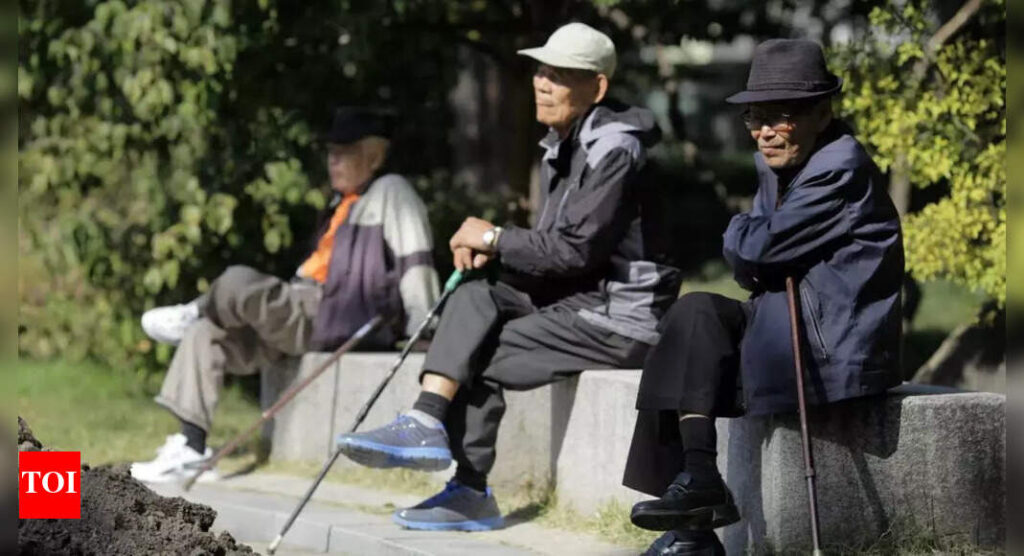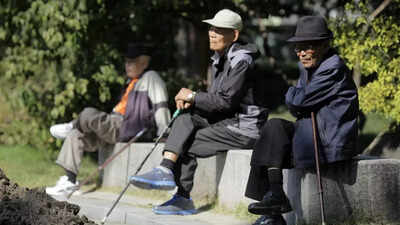10 elderly South Koreans die by suicide daily; the reason will leave you speechless | World News

South Korea, often hailed as a technological and cultural powerhouse, is facing a heartbreaking and underreported crisis. Every day, nearly 10 elderly South Koreans die by suicide, a staggering figure that speaks to a deeper issue plaguing the nation’s aging population. While most assume such tragedies stem from health problems alone, the real reasons run far deeper: emotional isolation, financial instability, and societal neglect. A recent study has shed light on the silent suffering endured by thousands of seniors, prompting urgent calls for nationwide intervention and reform.
South Korea’s elderly suicides reveal a growing national crisis
Between 2019 and 2023, over 18,000 South Koreans aged 65 and older died by suicide, nearly 3,000 lives lost annually. According to a study published in the Journal of the Korean Medical Association, the elderly suicide rate in South Korea reached 40.6 per 100,000 people in 2023, which is 45 percent higher than among younger adults.This alarming figure points to a crisis that is largely ignored by mainstream discourse.Despite South Korea’s advances in education, healthcare, and digital infrastructure, many older adults are left behind — especially after retirement. As younger generations move to urban centers and adopt modern lifestyles, older citizens are often isolated in rural towns, away from social support and family contact. The lack of robust elderly care infrastructure worsens this divide, making it easier for seniors to slip through the cracks.
The invisible weight of aging
So what is driving so many elderly South Koreans to end their lives? Experts point to a combination of loneliness, chronic illness, divorce, financial stress, and a deep-rooted sense of burden. Many seniors feel abandoned by their families or society. Cultural stigmas around mental health further prevent them from seeking help. Even worse, elderly individuals tend to use more lethal methods, reducing chances of survival and second chances.In a society that traditionally valued filial piety, the modern reality is much bleaker. South Korea’s rapid industrialization and urban migration have altered family dynamics. Many seniors now live alone or in care homes with minimal human interaction. Moreover, the national pension system provides insufficient income, leading to poverty and dependence. A divorced or widowed elder may not only struggle financially but also feel emotionally stranded without companionship or purpose. These feelings often go unnoticed — until it’s too late.
Why early intervention matters
According to Dr. Oh Dae-jong, author of the study and mental health expert at Kangbuk Samsung Hospital, seniors often do not reach out for help either due to shame or a belief they must endure in silence. By the time signs of distress are noticed, it is often too late. Dr. Oh stresses the need for training “gatekeepers” in the medical field to identify early warning signs such as subtle emotional cues or changes in behavior to prevent irreversible outcomes.Older adults are less likely to vocalize suicidal thoughts and more likely to act on them after only one or two attempts. Unlike younger individuals who may communicate distress through social media or peer networks, many seniors suffer in complete silence. Dr. Oh’s call for intervention includes not only healthcare workers but also social workers, pharmacists, and even delivery personnel — people who regularly interact with the elderly and could spot changes in mood or behavior. Community-based mental health outreach could be the difference between life and death.
South Korea’s aging population is exploding
This is not a small issue. It is a growing demographic shift. As of 2025, over 10 million South Koreans are aged 65 and above, making up nearly 20 percent of the population. That figure is only expected to rise. Without targeted intervention and support systems, the suicide rate among seniors could climb even higher in the years ahead.South Korea is one of the fastest-aging societies in the world. By 2050, estimates suggest that one in three South Koreans will be over 65. This shift puts immense pressure on healthcare systems, pension funds, and housing. Yet the emotional and psychological burden of this demographic change is rarely discussed. The country must proactively prepare for this transformation — not just by allocating funds, but by rethinking how it treats its elderly population. Building age-inclusive communities, expanding social engagement programs, and promoting intergenerational connection are crucial steps.
What needs to change and fast
Experts are calling for urgent mental health programs, community outreach, and stronger social safety nets for the elderly. South Korea’s healthcare and welfare systems must adapt quickly to accommodate the emotional and psychological needs of its aging citizens. Support groups, home visits, and destigmatizing therapy could make all the difference.In addition, structural reforms are needed in how the government supports retired individuals. Increasing monthly pensions, offering subsidized healthcare, and providing housing options for seniors living alone would immediately ease many of their stressors. Local governments can also play a role by organizing neighborhood check-ins and recreational centers that cater to elderly citizens. Awareness campaigns must tackle the taboo around mental health and encourage families to maintain regular contact with their elders.
A wake-up call for a nation
While South Korea leads in tech innovation and K-culture, its treatment of the elderly reveals a troubling societal gap. These tragic suicides are not just statistics. They are the voices of those who feel forgotten. Unless action is taken now, thousands more may suffer in silence. The time to listen, support, and care is long overdue.This issue is not unique to South Korea, but the country now stands as a cautionary tale for other rapidly aging societies. What’s unfolding is a mental health emergency with deep cultural, economic, and demographic roots. A nation is judged not just by its innovation, but by how it treats its most vulnerable. South Korea has the tools to turn this around — but only if it acts with urgency, compassion, and resolve.







